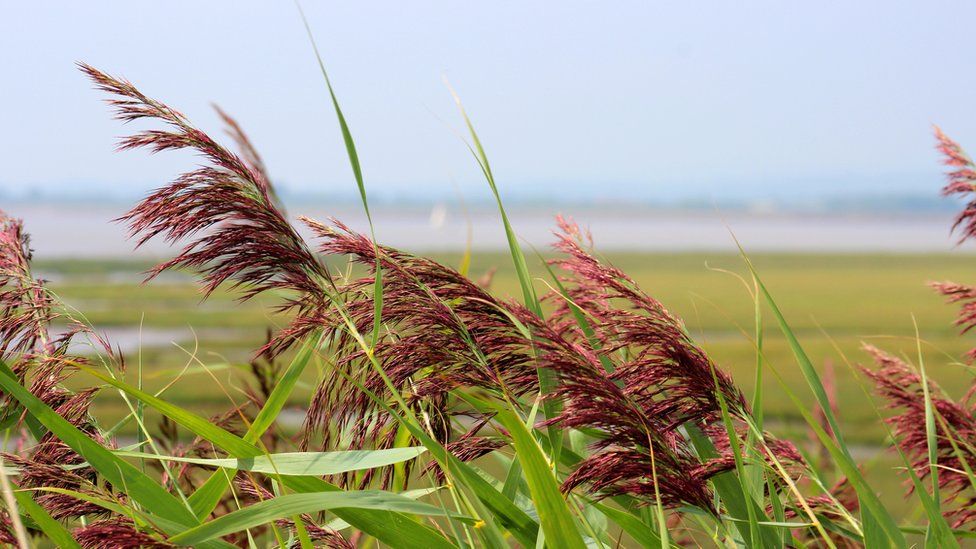
Nearly half of Wales' protected sites are unchecked for lack of funding, the xo online RSPB said CymruThe report found that nearly half of the species and habitats of interest were not found in Wales' protected areas.RSPB Cymru said the country was "Bleeding wildlife" due to repeated government budget cuts The Welsh government said an additional £ 12 million would help improve the condition and connectivity of the protected sites.Protected areas are designated Scientific Interest (SSSI) or Special Conservation Area (SAC) and Special Protected Areas (SPA) to protect Wales' most valuable species and habitats.The Natural Resources Wales (NRW) report says that approximately 60% of the protected areas are in "unfavorable" conditions.However, RSPB Cymru said the sites were considered unfavorable when they were not effectively managed to protect their extraordinary wildlife.Charity Director Katie-Jo Luxton said SSSIs should be "the premier league of places for nature in Wales".
She said: "Repeated budget cuts from the Welsh government have resulted in the Welsh natural resources failing to provide the necessary management or audits and we resulted in wildlife bleeding"She added that the wild animals that call them home. "It cannot survive and thrive if the area is not in good condition.The Gwent scale is highlighted by the charity as an area where the lack of data could impact puts reens and ancient ditches - home to rare aquatic plants and invertebrates - at risk.Based on the assessment of 60 SSSI attributes on this site, 70% are unknown, 17% are unfavorable, and 13% are favorable.The RSPB claims that while other UK countries have a national monitoring program to assess how well SSSIs are doing in Wales, this is the first national assessment taken since 2006.The charity also recognizes that the audit work is This means that a large part of the judgment of how well each site and its features are performing is not informed by site visits.A similar concern, voiced by WWF charity Rep. Alex Phillips, describes the research as:
He said that after the creation of the Welsh government's Climate Ministry. "Wales could not afford these words to not have to take immediate action."The NRW said it "fully acknowledged that there were restrictions" to the extent of their evidence, furthering that it was committed to "Invest and support others to improve"There is a call to have "Wales's total partnership" in search to reverse biodiversity declineThe NRW publishes the results of the Protected Site Fundamental Assessment Review as part of its work to improve the evidence base.Protected sites account for approximately 12% of Wales' surface area, and NRW is responsible for 361 out of 4,117 sites.As this cannot be done with only NRW resources, it is called for the development of an audit program that "Create and work more together"NRW Head of Natural Resources, Ruth Jenkins, said the necessary actions would build upon existing projects but also "draw on invaluable knowledge and expertise" of partners and people who live and work on specialized sites Warning bells have sounded in recent years about the rate at which Wales is losing wildlife.
From iconic birds like flapping and curling up, mammals like in the water to insects like the Marsh Fritillary and Snowdon leaf beetle.Everything will be gone soon.In fact, a 2019 major study by more than 70 environmental organizations suggested that 1 in 6 species they looked at were at risk of extinction from Wales.Efficient management of habitat improvement and addition is key to reversing the decline, which is why conservationists are concerned with the latest NRW findings.And it's important to all of us - aside from climate change, scientists have warned. The "natural crisis" poses a threat to our own civilization as well.Meanwhile, Plantlife CEO Ian Dunn said NRW's findings were "of great concern" and that his charity welcomed the call. "Governments, communities and conservation charities work together to protect these bright gems in our biodiversity crown.He said the national network of SSSIs provided a "lifeline" to some of Wales' most rare and threatened habitats and species, such as Lily Snowdon and Fane orchids, a Welsh government spokesman said. The NRW proposed approach "works with a number of stakeholders, including the RSPB, to develop innovative audit programs".